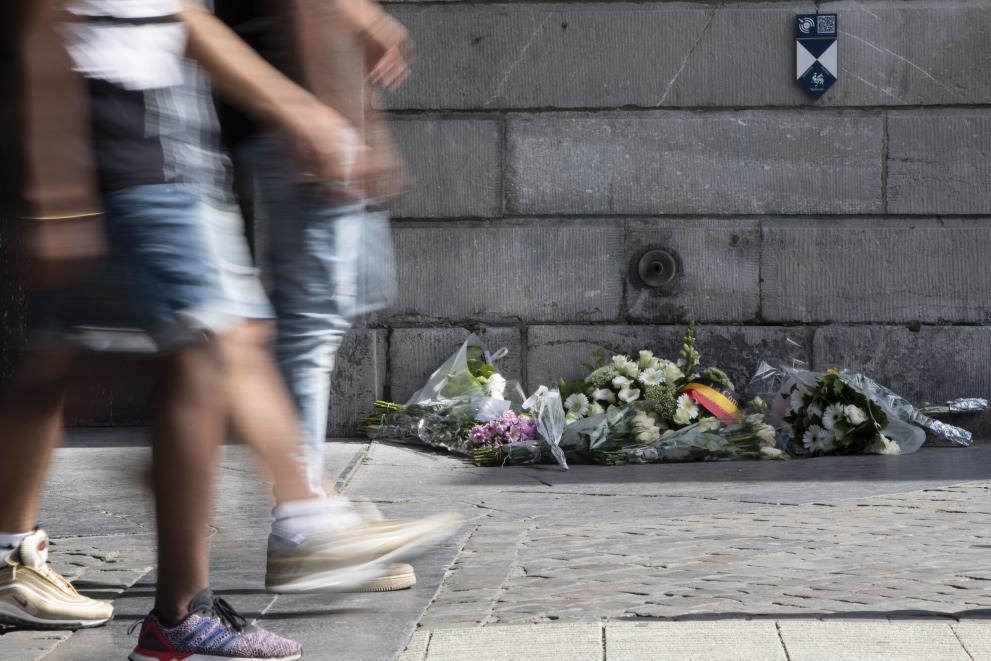
“Today, Europe pays tribute to the victims and survivors of terrorist attacks. We will never forget them. We will not surrender to the fear terrorists try to instil when they commit their atrocities. The goal of terrorists is to divide our society. We will not allow them to succeed.
Fighting terrorism is a priority for the EU. Just as we honour the memory of those lost to terrorism, we also strive to prevent any future attacks. To help prevent terrorist offences, the EU is active in fighting terrorist propaganda, offline and online: by denying terrorists the means and limiting their space to plan, to finance and carry out attacks, by countering radicalisation and by enhancing information exchange and police cooperation.
The European Commission has put forward a Counter-Terrorism Agenda in December 2020 to better anticipate, prevent, protect and respond to terrorist threats. Work is ongoing on the implementation of the Counter-Terrorism Agenda, which is a core component of the Security Union Strategy. The EU Home Affairs agencies are providing crucial support to the national authorities and law enforcement. As of 7 March, an upgraded Schengen Information System contains new alerts to support national authorities in preventing and combating terrorism.
Terrorist attacks are an attack on our society and our way of being. The Commission will therefore continue to support survivors to help them rebuild their lives. Through the Radicalisation Awareness Network, we also ensure that the voices of victims and survivors are centred in our response.
On this day of remembrance, we renew our resolve in supporting victims and building inclusive and resilient societies.”
Background
The European Day of Remembrance of Victims of Terrorism was established after the Madrid Bombings of 11 March 2004. Each year since 2005, the European Union remembers on this date the victims of terrorist atrocities worldwide.
The Radicalisation Awareness Network, through its working group on remembrance of victims of terrorism, presents victims' experiences, contributes to the remembrance of all victims of terrorism, and highlights the human consequences of violent extremism. Victims' rights and support to them are also at the heart of work carried out by the European Network of Associations of Victims of Terrorism, set up by the Commission.
The Commission has put forward a new Counter-Terrorism Agenda setting out the way forward for actions to counter terrorism at EU level, looking to better anticipate, prevent, protect and respond to terrorist threats. The Counter-Terrorism Agenda is one deliverable of the way forward on internal security, a core component of the Security Union Strategy adopted by the Commission in July 2020. The Counter-Terrorism Agenda aims at:
- Identifying vulnerabilities and building capacity to anticipate threats
- Preventing attacks by addressing radicalisation
- Promoting security by design and reducing vulnerabilities to protect cities and people
- Stepping up operational support, prosecution and victims' rights to better respond to attacks
The EU Internet Forum provides a collaborative environment for governments in the EU, the internet industry, and other partners to discuss and address the challenges posed by the presence of malicious and illegal content online. The Forum aims at exploring possible responses against abuse and exploitation of online platforms by terrorists and violent extremists.
Providing support to victims of crime, including victims of terrorist attacks, is an important part of the Commission's work to address all dimensions of the terrorist threat. The EU has put in place a strong legal framework to protect victims across Europe through the EU-wide compensation scheme, the Victims' Rights Directive and the Directive on Combating Terrorism. The Commission also adopted its first EU Strategy on victims' rights (2020- 2025). The main objective of this strategy is to ensure that all victims of crime, no matter where in the EU or in what circumstances the crime took place, can fully rely on their rights. The Commission has established an ad hoc group on victims of terrorism under the EU Victims' Rights Platform. The Commission has taken actions to ensure the continuity of the EU Centre of Expertise for Victims of Terrorism and has selected a consortium that will carry on its tasks for the next two years.
Details
- Publication date
- 10 March 2023
- Author
- Representation in Cyprus
